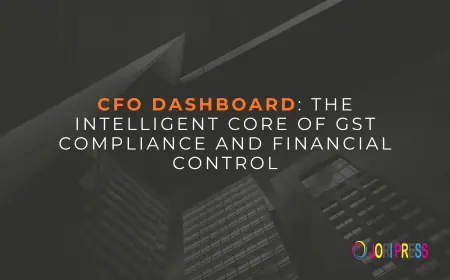What is CPA Paid Marketing?
Cost Per Acquisition (CPA) is a performance-based model of paid marketing that focuses on driving actual conversions rather than just clicks or impressions. For businesses, especially large enterprises, leveraging enterprise PPC management services or partnering with an enterprise PPC agency can optimize the effectiveness of CPA campaigns. Enterprise PPC company services often include CPA-based strategies to ensure that businesses only pay when a tangible action—like a sale or lead—is achieved. In this blog, we’ll dive deep into what CPA paid marketing is, how it works, and why it’s a valuable strategy for enterprise businesses looking to scale their marketing efforts efficiently.
Understanding CPA Paid Marketing
CPA, or Cost Per Acquisition, refers to a type of online advertising where an advertiser pays only when a specified action is completed. This could be anything from a sale (in e-commerce) to a lead submission (in lead-generation businesses). Unlike traditional cost-per-click (CPC) models, where advertisers pay for each click, or cost-per-impression (CPM) models, where payment is based on the number of impressions, CPA ensures that advertisers only pay for completed actions that meet their predefined goals.
For enterprises, enterprise PPC management services offer a more tailored approach to managing CPA campaigns, ensuring that businesses are optimizing their spending to only pay for actual conversions. This model is especially popular among businesses looking for measurable results from their marketing spend, as it aligns advertising costs directly with business outcomes.
How Does CPA Work in Paid Marketing?
In CPA paid marketing, advertisers create campaigns with a specific goal in mind, such as getting a user to make a purchase, sign up for a newsletter, or fill out a contact form. Once the campaign is live, businesses only pay when that predefined action occurs.
To run a CPA campaign, businesses generally set up tracking to measure when the conversion happens, whether it's through a thank-you page after a sale, a confirmation email, or other mechanisms that verify the action. Enterprise PPC services often utilize advanced tracking technologies, including cookies and pixels, to ensure that conversions are accurately attributed to specific ads or campaigns.
Key Benefits of CPA Paid Marketing
-
Cost-Effective for Enterprises: Since businesses only pay for actual conversions, CPA is one of the most cost-effective models for large enterprises, especially when working with an enterprise PPC agency. It eliminates the risk of paying for clicks that don’t result in sales or leads, ensuring that advertising budgets are used efficiently.
-
Targeted Campaigns: Unlike traditional forms of advertising where the focus is on awareness or impressions, CPA is results-oriented. When an enterprise partners with an enterprise PPC company, they can create highly targeted campaigns that reach the right audience based on behaviors, interests, location, and even device. By focusing on users more likely to convert, enterprises can increase the likelihood of obtaining valuable customers.
-
Better ROI (Return on Investment): Because CPA campaigns are focused on conversions, enterprises can measure their advertising success by calculating the return on investment (ROI) more precisely. This makes it easier to see how much revenue each advertising dollar is generating, and to optimize campaigns accordingly.
-
Scalability: With enterprise PPC management, businesses can easily scale their CPA campaigns. Once a campaign achieves positive results, it can be scaled up to reach a larger audience without increasing the risk of wasted ad spend. As more data is gathered and the campaign becomes more refined, businesses can expand their reach while maintaining a high level of efficiency.
-
Less Risk for Advertisers: For large enterprises, the shift to performance-based marketing like CPA reduces the overall risk involved with advertising. Since payments are only made for specific actions, businesses can control their budgets more effectively, reducing wasted spend on non-converting traffic.
How Can Enterprises Leverage CPA in Their Marketing Strategy?
For large businesses looking to implement a successful CPA paid marketing strategy, collaborating with an enterprise PPC agency is often key. These agencies have the expertise to set up sophisticated campaigns and optimize them for better performance. Here's how enterprises can leverage CPA:
-
Choose the Right Conversion Action: The first step in setting up a CPA campaign is defining the conversion action. For e-commerce businesses, this might be a completed purchase. For B2B companies, it could be a form submission or a phone call. It’s crucial to align the conversion with the ultimate goal of the campaign to ensure that it drives the desired results.
-
Create Compelling Ads: To achieve high conversion rates, the ads in a CPA campaign need to be compelling. The ad copy should match the conversion goal, whether that’s encouraging a purchase or asking for a sign-up. An enterprise PPC company can help optimize ad copy and design to ensure they align with customer intent and drive higher conversion rates.
-
Optimize Landing Pages: The landing page where users are directed after clicking on the ad is critical for achieving conversions. A well-designed landing page that is aligned with the ad and provides a smooth user experience is more likely to convert. Enterprises often work with enterprise PPC management services to ensure landing pages are optimized for conversions, reducing bounce rates and maximizing the chances of completing the desired action.
-
Monitor and Optimize Campaigns: To maximize the effectiveness of a CPA campaign, constant monitoring and optimization are necessary. Enterprise PPC services allow businesses to track key metrics, such as conversion rates, cost per conversion, and ROI. With real-time data, businesses can fine-tune targeting, bidding, and ad creatives to improve campaign performance.
Challenges in CPA Paid Marketing
While CPA paid marketing has many benefits, it does come with challenges. For instance, CPA campaigns require precise tracking mechanisms to ensure that conversions are attributed correctly. Without accurate tracking, businesses risk paying for actions that they didn’t actually drive. Additionally, CPA campaigns can sometimes have higher upfront costs, especially if the conversion action is difficult to achieve.
However, these challenges can be mitigated by partnering with an experienced enterprise PPC company or enterprise PPC agency. These specialists can implement advanced tracking systems, continuously optimize campaigns, and ensure that enterprises get the most value out of their CPA campaigns.
Conclusion
In conclusion, CPA paid marketing is an effective performance-based strategy that helps enterprises focus on actual business outcomes, such as sales or leads, rather than just clicks or impressions. By working with an enterprise PPC agency or an enterprise PPC management team, large businesses can execute highly targeted, cost-effective campaigns that deliver measurable results. Whether you’re looking to drive conversions for your online store or generate high-quality leads, enterprise PPC services can help you create a successful CPA campaign that maximizes ROI and minimizes advertising risks.
What's Your Reaction?
 Like
0
Like
0
 Dislike
0
Dislike
0
 Love
0
Love
0
 Funny
0
Funny
0
 Angry
0
Angry
0
 Sad
0
Sad
0
 Wow
0
Wow
0













































